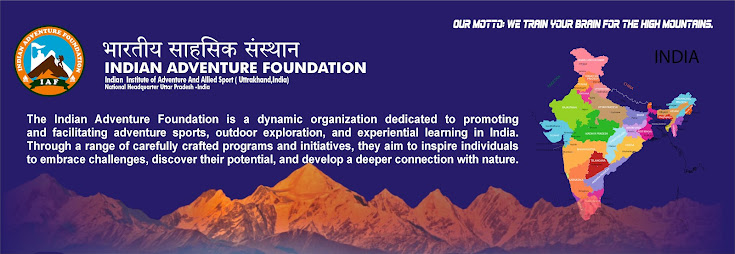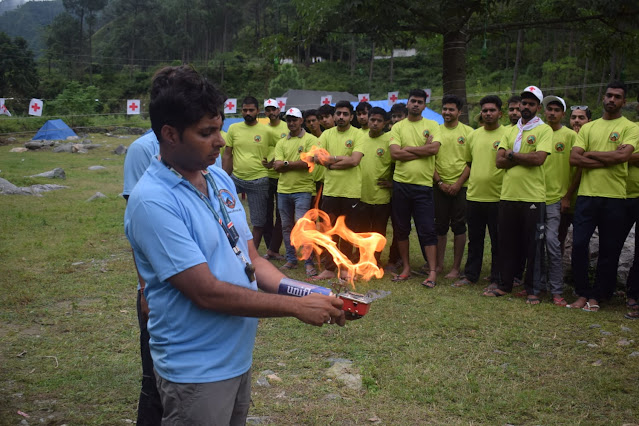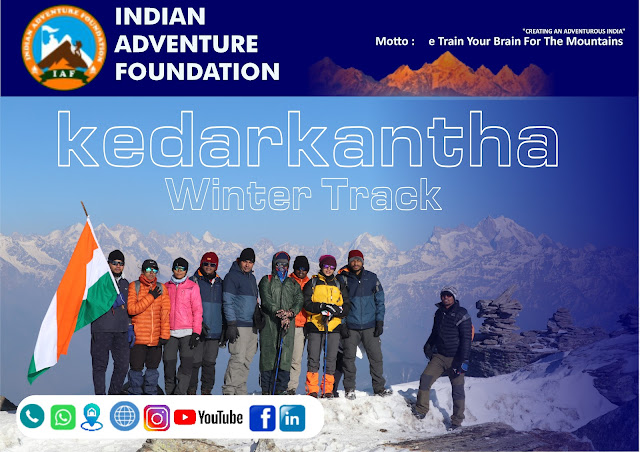Most Importance Trekking Tips
Most Importance Trekking Tips
Ø Well fitting strong shoes with a couple of woollen socks. The shoes should be used before treks to avoid blisters.
Ø First aid set for minor accidents and sickness.
Ø A raincoat is necessary to meet uncertainties of weather.
Ø Chocolates, lozenges, candies, glucose and dry fruits provide extra pep and energy.
Ø t is advisable not to exhaust energy by walking fast, as otherwise the trek will be not enjoyable Trekking is very often confused with mountaineering, whilst mountaineering is a preplanned affair, trekking does not require as much preparation. Mountaineering is more technical in nature and is quite hazardous and this is not so in the case of trekking.
Ø Physical Fitness: Before embarking on a trek, make sure you are in good physical condition. Regular exercise and stamina-building activities will help you handle the demands of trekking.
Ø Choose the Right Trek: Select a trek that matches your fitness level and experience. Beginners should opt for easier treks, while experienced trekkers can take on more challenging routes.
Ø Footwear: Invest in a good pair of trekking shoes with proper ankle support. Break them in before the trek to prevent blisters.
Ø Clothing: Dress in layers to accommodate varying temperatures. Avoid cotton as it retains moisture; opt for moisture-wicking and quick-drying fabrics. Carry a warm jacket, gloves, and a hat for colder altitudes.
Ø Hydration: Stay hydrated by drinking water regularly. Carry a reusable water bottle and use water purification methods if necessary.
Ø Navigation: Carry a map and compass or a GPS device. Familiarize yourself with the route beforehand and follow trail markers.
Ø Safety in Numbers: Trek with a group or at least one companion. Solo trekking should be avoided, especially in remote areas.
Ø Altitude Sickness: If trekking at high altitudes, be aware of altitude sickness symptoms like headache, dizziness, and nausea. Acclimatize properly and descend if symptoms worsen.
Ø Leave No Trace: Follow the principles of responsible trekking. Dispose of waste properly, avoid damaging vegetation, and leave the environment as you found it.
Ø Weather Awareness: Keep an eye on weather forecasts before and during the trek. Be prepared for sudden weather changes in mountainous regions.
Ø Emergency Contacts: Share your trekking plans and estimated return time with a friend or family member. Carry a fully charged mobile phone with emergency contact numbers saved.
Ø Respect Local Culture: Observe local customs and traditions. Ask for permission before taking photographs of people or their property.
Ø Wildlife Caution: Respect wildlife and maintain a safe distance. Do not feed animals, as it can disturb their natural behaviour.
Ø Trail Etiquette: Yield the trail to uphill trekkers, stay on marked paths, and avoid shortcuts that can cause erosion.
Here is a list of items that are recommended for your trekking journey.
Please note that this list may vary based on the specific Course, Tour, Trek ,Expatiation, Camp ,Other Event, weather conditions, and personal preferences:
Ø Light Hat for Trekking: 1
Ø Warm Jacket (suitable for 5 to 15 degrees Celsius): 1
Ø Lightweight Raincoat or Poncho / Umbrella: 1
Ø Woolen Socks: 2 pairs
Ø Cotton Socks: 2 pairs
Ø Cotton Shirts: 2
Ø Cotton Trousers: 2
Ø Jungle Boots or Trekking Boots (avoid PVC soles): 1 pair
Ø Running Shoes for morning physical training: 1 pair
Ø Torch or Headlamp with Battery Cells: 1
Ø Writing Material (Ball Point Pen & Diary): As required
Ø Toilet Requisites: As required
Ø Sun Glasses with Side Covers: At least 2
Ø Waterproof Cover for Turbans (for Sikhs only): As required
Ø Swimming Trunks (essential for Adventure course trainees): 1 set (Note: Not required for all treks)
Ø Multi-Tool Kit (Nail and Tin Cutter), Small Lock: 1 each
Ø Anti-Chap Cream / Sunburn Cream, Cold Cream, Sun Cream: As required
Ø Track Suit: 1
Ø Repair Kit (Needle, Thread & Buttons, etc.): 1 set (at least)
Ø Cap Balaclava (Woolen) / Scarf Woolen: As required
Ø Woolen Gloves: 1 pair
Ø Thermal Cot / Thermal Innerwear: 2 pairs minimum
Ø Two Passport Size Photographs: As required
Ø Water Bottle, Plate (Thali), Glass or Mug, Spoon, Torch, Knife, etc.: 1 each
Ø Notebook, Pen, First Aid Kit, Water Purifying Tablets, Odomas, etc.: 1 each
Ø This comprehensive list covers a range of clothing, footwear, personal items, and tools that would be useful during your trekking experience. Make sure to adjust the quantities and items based on the specific requirements of your trek and the weather conditions you'll encounter.


.jpeg)
%20-%20Copy.jpeg)

%20-%20Copy.jpeg)


.jpeg)



Comments
Post a Comment